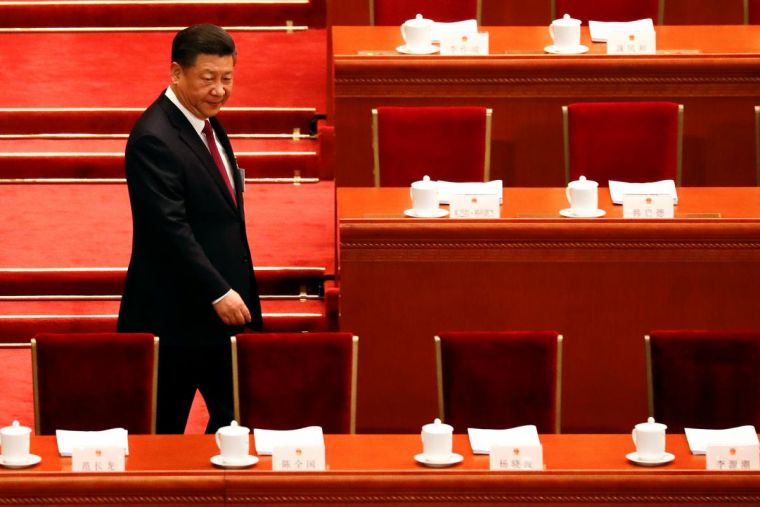As Xi heads to Italy, Vatican says China should not fear Church

A top Vatican official says China's government should not fear "distrust or hostility" from the Roman Catholic Church, writing amid speculation over whether President Xi Jinping will meet Pope Francis this week.
Senior Vatican sources have said Francis is willing to meet Xi and that intermediaries had made overtures to the Vatican, but the Chinese side had not yet formally asked for a meeting. Any encounter would be the first between a Chinese leader and a pope.
Xi's visit, starting Thursday, is his first to Italy following a historic agreement in September between the Vatican and the Chinese government on the appointment of bishops in China.
Beijing cut diplomatic ties with the Vatican in 1951 and has remained concerned that an independent Church in China could threaten its authority.
"The Holy See (nurtures) no distrust or hostility towards any country," Vatican Secretary of State Cardinal Pietro Parolin writes in the introduction of a new book on China to be published on Tuesday. An advance copy of Parolin's comments in the book, "The Church in China - A Future Yet to be Written" - were made available to Reuters.
Parolin, second only to the pope in the Vatican hierarchy, said the Catholic Church's work in China "cannot be separated from a stance of respect, esteem, and trust towards the Chinese people and their legitimate state authorities."
This appeared to be another attempt by the Vatican to allay Beijing's concerns.
While the historic September agreement initiated an unprecedented direct dialogue between the Vatican and China, Beijing and the Holy See have not resumed diplomatic, relations.
Parolin wrote that the previously "inextricable knots" in relations between China and the Vatican could be untied through a new, unified approach involving a mix of "theology, law, pastoral work, and even diplomacy."
It is routine for heads of state and government visiting Italy to also meet the pope. A Vatican source said it could be inserted into Xi's schedule "at the last minute". A Vatican spokesman said it is not on the pope's schedule.
The September deal, in the making for more than 10 years, gives the Vatican a long-sought say in the choice of bishops in China. Critics, particularly conservative Catholics, have labelled it a sellout to the Communist government.
China's approximately 12 million Catholics have been split between an underground Church swearing loyalty to the Vatican and the state-supervised Catholic Patriotic Association. Now both sides recognise the pope.
Many believe the September deal is a precursor to resumption of diplomatic ties with Beijing.
That would mean severing relations with Taiwan, which Beijing regards as a renegade province. The Vatican is the self-ruled island's last remaining diplomatic ally in Europe.











